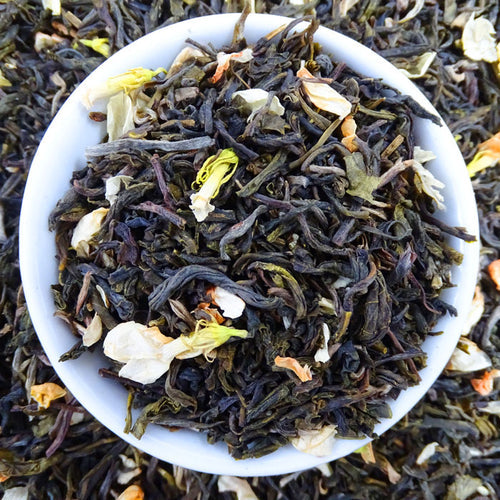If you've never really shopped organic products before, it can be easy to overlook it as an extra feature that many businesses and products proudly advertise. We find that the reason why people tend to purchase non-organic tea over organic tea is that they generally don't know about the benefits of organic tea - or know why or how a tea can be organic and if it's worth the hassle. So today, we'll dive deeper into what organic tea is and whether it's actually better for you compared to regular tea.
So, what is organic tea?
Organic tea is tea that has been grown and processed without the use of pesticides, herbicides, or other chemicals. This means that organic teas are not only better for your health, but they're also better for the environment. Organic farmers use traditional farming methods to grow their crops, which means they rely on organic matter such as compost and manure to fertilize their tea plants. It doesn't mean that regular tea is bad for you because they use methods that use more chemicals but organic tea is definitely the healthier choice and the more sustainable choice too.
When it comes to taste, organic tea and regular tea generally don't taste too different. The main difference you'll notice is in the quality of the leaves - organic tea leaves are usually larger and more uniform in shape compared to regular tea leaves, which tend to be smaller and more broken up. This is because organic farmers take better care of their tea plants and don't allow them to become overgrown or damaged. As a result, organic tea leaves retain more of their flavour and aroma, which you'll be able to taste in the cup. Due to these higher-quality leaves, and therefore a higher quality tea, they do tend to be a bit smoother in taste, with less bitter aftertaste than non-organic teas.
What are the health benefits of organic tea?
Organic tea leaves are richer in antioxidants than regular tea leaves, which means they're technically better for your health. Antioxidants help to protect your cells from damage and can reduce your risk of developing chronic diseases such as heart disease, cancer, and diabetes. They can also boost your immune system and help to keep your skin looking young and healthy. In general, organic foods are better for your health than non-organic foods because they're not exposed to as many harmful chemicals.
Is there a difference between organic and certified organic?
There is a slight difference, and it's important to be aware of it when you're shopping for organic tea. "Organic" means that the tea was grown without the use of synthetic pesticides or fertilizers, while "certified organic" means that the tea meets certain standards set by an organic certifying body. In order for a tea to be certified organic, the farmer must follow specific guidelines and submit their tea for inspection. The certifying body will then decide whether or not the tea meets its standards for organic certification. In general, both organic and certified organic teas are grown without the use of harmful chemicals, but certified organic teas have to meet a higher standard.
So, is organic tea better for you?
Yes, organic tea is definitely better for you than regular tea. It's grown without the use of harmful chemicals, which means it's healthier for you and the environment. Plus, the higher quality leaves used to make organic tea result in a smoother, more flavourful cup of tea. If you're looking for the best quality tea, be sure to look for organic and certified organic teas from Tea Life. Some of our favourite certified organic teas from Tea Life include our Jasmine Tea, Chamomile Tea, Peppermint Tea and Matcha Tea. We have many teas grown in various parts of the world from China, India and Japan which have been certified organic, so there are plenty of organic teas to choose from to give them a try!
You might pay a bit more for these teas, but it's worth it for the health benefits and the peace of mind knowing that you're supporting sustainable farming practices. If you're trying it for the first time, do let us know what you think and if you're convinced to buy organic more often!



